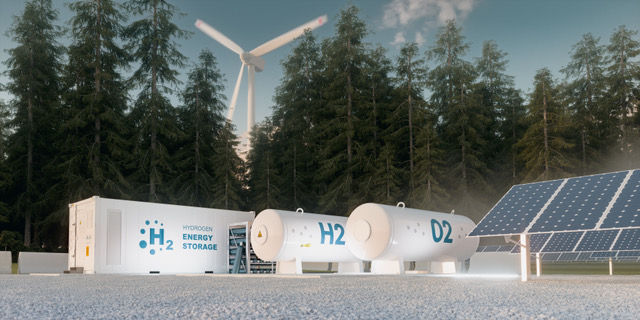4CleanTech's ADBA Article: How to make the biogas CHP a success
- Guenther J. Schulz
- Jan 29, 2021
- 3 min read
Updated: Mar 7, 2022
When planning a CHP (combined heat and power unit) for a new AD plant or when replacing an existing CHP, it is really important to have the bigger picture in mind. The investment price and electrical efficiency alone are not the only factors to concentrate on.
An important aspect when buying a Biogas CHP is, apart from the price, the electrical efficiency. Buyers are always advised on how much more gas yield they can generate when they buy a CHP with higher electrical efficiency. In fact, 1% more efficiency of a 500 kWh CHP will increase the annual income by approximately £22k.
This advantage does however come at a price. A CHP of 500kWh for example normally has an electrical efficiency of 39%-40%. If the CHP manufacturer increases the electrical efficiency by 2% , e.g. by increasing the engine medium compression with different pistons, the engine will react significantly more sensitively. The CHP will have more malfunctions and an increased shortening of the life cycle.
Michael Wentzke, Managing Director of IG Biogasmotoren recently published an article in the German Biogas Journal on this subject, where he describes such a typical case with the MWM engine TCG 2016C. From this, it can be concluded that the focus should not be an electrical efficiency alone.
But where else should the focus be, to make the future Biogas CHP a success?
An important precondition is a consistently good biogas quality combined with constant levels of production. Apart from the feedstock, this is mainly ensured by a well-planned and constructed fermentation line with a high efficiency rate.
Another success factor of operating a CHP is a good service concept.
Guenther J. Schulz, director of Kent-based 4CleanTech and former CEO of a CHP manufacturer highlights this aspect: "After years of monitoring CHP's and Biogas plants, I am of the strong opinion that a good service and maintenance concept is crucial to allow the CHP to run for more than 12 years and to avoid downtime. A fair relationship on equal footing between the AD plant owner and the CHP company is vital here."
The AD plant investors and of course the insurance companies, usually prefer a full service and maintenance contract, ideally with a duration of 12 years to ensure that everything is covered and safe.
A long-term contract like this naturally poses a number of uncertainties for the CHP supplier, especially with unproven engines, which is why CHP suppliers are forced to plan for an expensive safety rate. The issue with these contracts is therefore that they are a significant financial disadvantage for the client and also do not cover every form of damage. As soon as a very costly damage arises, some CHP suppliers end up blaming the operator because of a breach of obligations.
The clients mostly accept this strategy and pay for the damage as they are ultimately dependent on the CHP manufacturer to provide the technical support for the future of the CHP.
In some European countries, in order to avoid such problems, biogas plant owners/operators have joined forces, exchanged their experiences, and set up purchasing groups in order to develop more purchase volume in relation to the CHP manufacturer.
Which key factors should a future CHP buyer take into consideration?
Investment price
Moderate efficiency to guarantee reliability and at least a 12-year life cycle
Good biogas quality which comes with quality feedstock, high fermentation line efficiency and a qualified gas preparation
A maintenance and service contract where the service company and plant owner are on an equal footing
Build purchasing and information groups of biogas plant owners/operators to have more market power over the CHP manufacturers
Looking at these key factors, it is clear that not every AD plant owner can nor, perhaps, would want to go through this process simply on the purchase and operation of a CHP plant.
To help achieve the same goals, 4CleanTech LTD has developed a CHP outsourcing concept called CHP-PA.
This solution involves the purchase and installation of the CHP as well as an included service and maintenance contract provided by 4CleanTech.
The owner of the AD unit has no costs for purchase and service, they only pay per hour of use with a minimum of 6000 hours per year.
This allows the AD owner/operator to ensure that the CHP is a success and has time to concentrate on other aspects of the AD plant.
Find the full article here: https://adbioresources.org/member-press-release-how-to-make-the-biogas-chp-a-success/



Comments